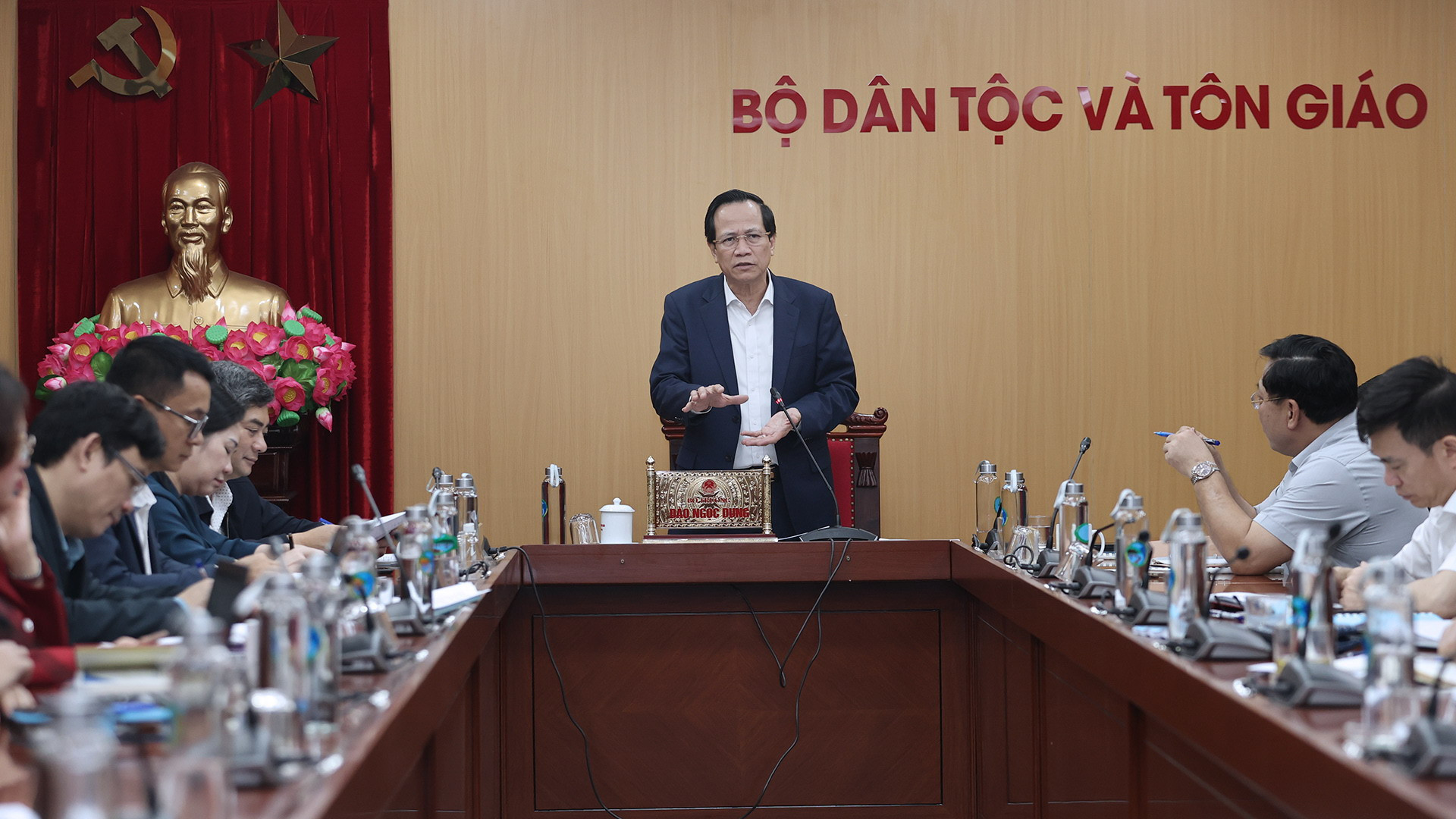
On March 14, Minister of Ethnic and Religious Affairs Dao Ngoc Dung chaired a meeting in Hanoi to discuss amendments to Decision No. 1719/QD-TTg, which approved the National Target Program for Socioeconomic Development in Ethnic Minority and Mountainous Areas (2021-2030).
The program aims to rapidly and sustainably improve livelihoods and welfare, ensuring that no one is left behind.
"Reducing overall poverty is already challenging, but tackling poverty in ethnic minority areas is even harder," the Minister stated. "Yet, thanks to nationwide efforts, Vietnam has cut the ethnic minority poverty rate by over 3%, achieving the National Assembly's target. This is a milestone that positions Vietnam as a global role model."
As a result, Vietnam has been invited to Italy to present its best practices in bridging socioeconomic gaps, and to Brazil to share its poverty reduction strategies. Vietnam is also the only Asian country invited to co-found the Global Anti-Poverty Program.
Pushing for real transformation with a ‘people-first’ mindset
The 1719 Program officially launched in June 2022, but has faced many challenges.
"Sustainable poverty reduction is difficult when addressing multiple deprivations - income, clean water, sanitation, education, healthcare… The terrain is tough, the beneficiaries are vulnerable, and the funding is fragmented," the Minister acknowledged.
He pointed out several policy shortcomings, including:
Rigid administrative procedures - for example, a $800 (20 million VND) housing grant still requires competitive bidding, as if it were a public investment project.
Excessive bureaucracy - even small-scale village projects require National Assembly approval.
Overlapping programs and agencies - with 10 sub-projects, 14 components, 36 action items, and 23 government ministries involved, local authorities struggle with implementation.
To accelerate progress, Minister Dung emphasized three immediate priorities:
Expedite legal adjustments - finalizing amendments to Decision 1719 and Circulars 01 and 02 within the next week.
Unblock stalled initiatives - focusing on delayed projects, low-impact programs, and underutilized public investment funds.
Decentralize authority - giving local governments more decision-making power, instead of relying on centralized control.
"Let’s rethink Decision 1719 and empower local governments. The Minister shouldn’t be handling village-level tasks," he asserted.
Additionally, he called for increased monitoring and field evaluations, sending task forces to assess both high-performing and underperforming regions. These findings will shape the 2026-2030 poverty reduction strategy.
"We need stronger political commitment, broader vision, and more effective action. It’s time to create fundamental, lasting change in poverty reduction—with a true ‘people-first’ mindset," he concluded.
Calls for targeted improvements
Experts proposed urgent revisions to Decision 1719, particularly:
Sub-project 1 & Project 9, which focus on socioeconomic development for the most disadvantaged ethnic groups.
Streamlining complex procedures, as many provinces struggle to navigate the extensive regulations.
Maximizing budget utilization, as some regions have failed to fully allocate government funding, leading to waste and inefficiencies.
Binh Minh